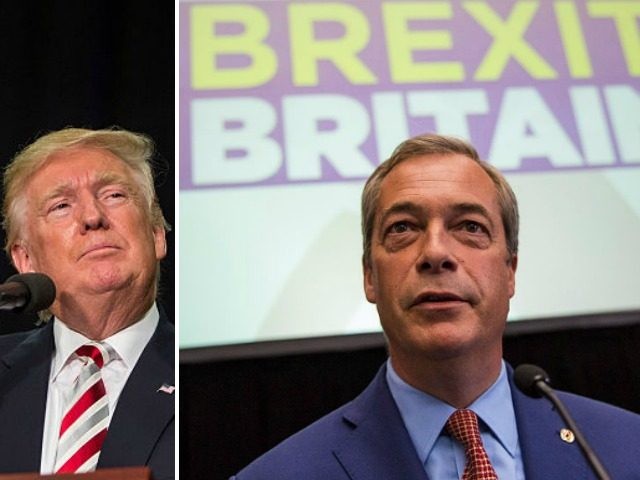U.S. Presidential candidate Donald Trump has said this morning: “They will soon be calling me MR. BREXIT!” in a tweet expressing how he believes he will win the U.S. election despite polling figures showing him behind Democrat opponent Hillary Clinton.
Mr. Trump – who yesterday announced the hire of Breitbart’s Executive Chairman Stephen K. Bannon as his new campaign CEO – as well as top pollster Kellyanne Conway, is said to believe that the U.S. presidential election is similar to the United Kingdom’s European Union referendum campaign, where pollsters consistently underestimated the Brexit vote, leading to a shock victory for the populist Leave campaigners.
They will soon be calling me MR. BREXIT!
— Donald J. Trump (@realDonaldTrump) August 18, 2016
In late June, opinion polling showed the Brexit campaign to leave the European Union (EU) down by as much as six points, with analysts claiming this number might even be larger when considering the “Don’t Know” voters and how they would likely break for the Remain campaign.
Mr. Trump appears to have learned the lessons from that incident, realising the not only are the methodologies of pollsters imperfect, but some of them are even changing their methodologies if Mr. Trump is shown to be anywhere close to Mrs. Clinton.
https://twitter.com/RaheemKassam/status/739188704351297537?ref_src=twsrc%5Etfw
The same thing happened during the Brexit campaign (as above), as discussed by on the Breitbart News Daily radio show this morning.
In May 2016, Breitbart London reported: “Concerns have been raised over recent EU referendum polls that show massive, anomalous leads to the ‘Remain’ camp, calling into question why the Telegraph newspaper is using a lesser known polling company using sample sizes which are less than half that of regular referendum polls.
“A recent ORB poll showed the Remain campaign in the lead by 13 points among people who definitely intend to vote. This is at odds with polling from major UK pollsters who use larger sample sizes.
“For instance, Opinium has Remain in the lead by just four points, the same as YouGov. Both companies use sample sizes twice as large as ORB.”
…
“One polling industry insider told Breitbart London that ORB uses “random digit dialing” which effectively dials random numbers until it makes a connection with a human being who might answer questions. The methodology is used by Pew’s Research Center, but in tiny sample sizes can lead to a less representative sample that relies more on post-poll weighting.”

COMMENTS
Please let us know if you're having issues with commenting.